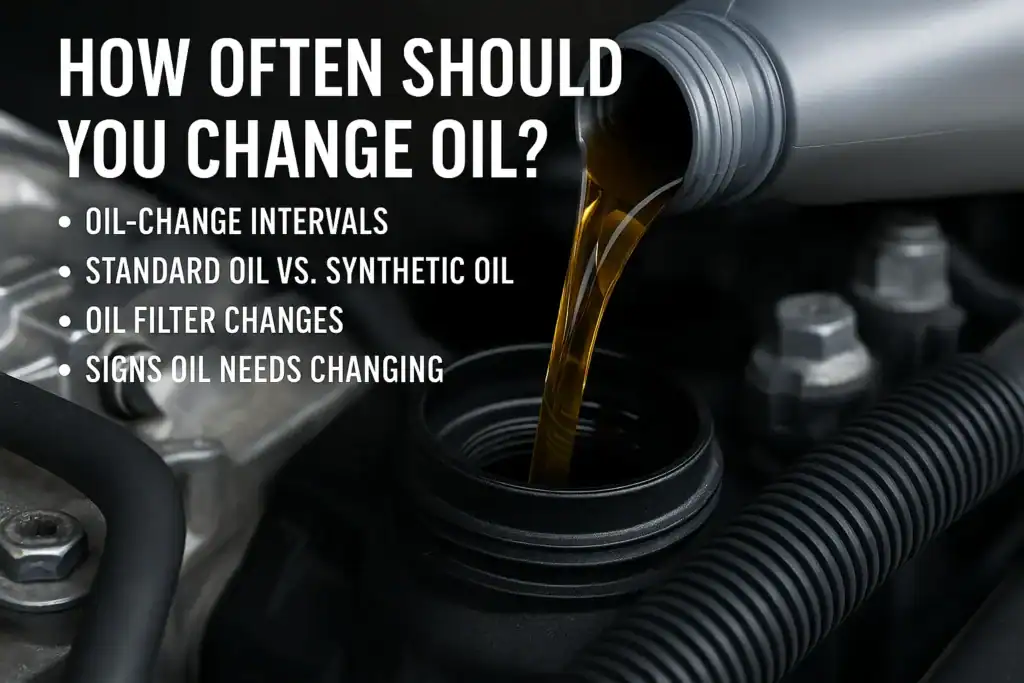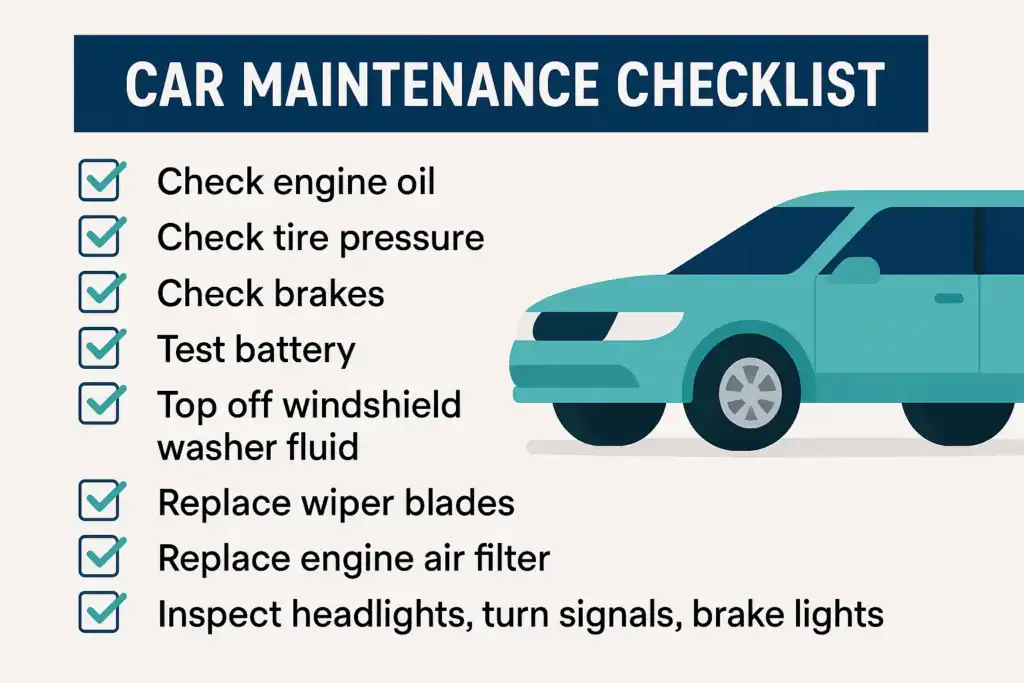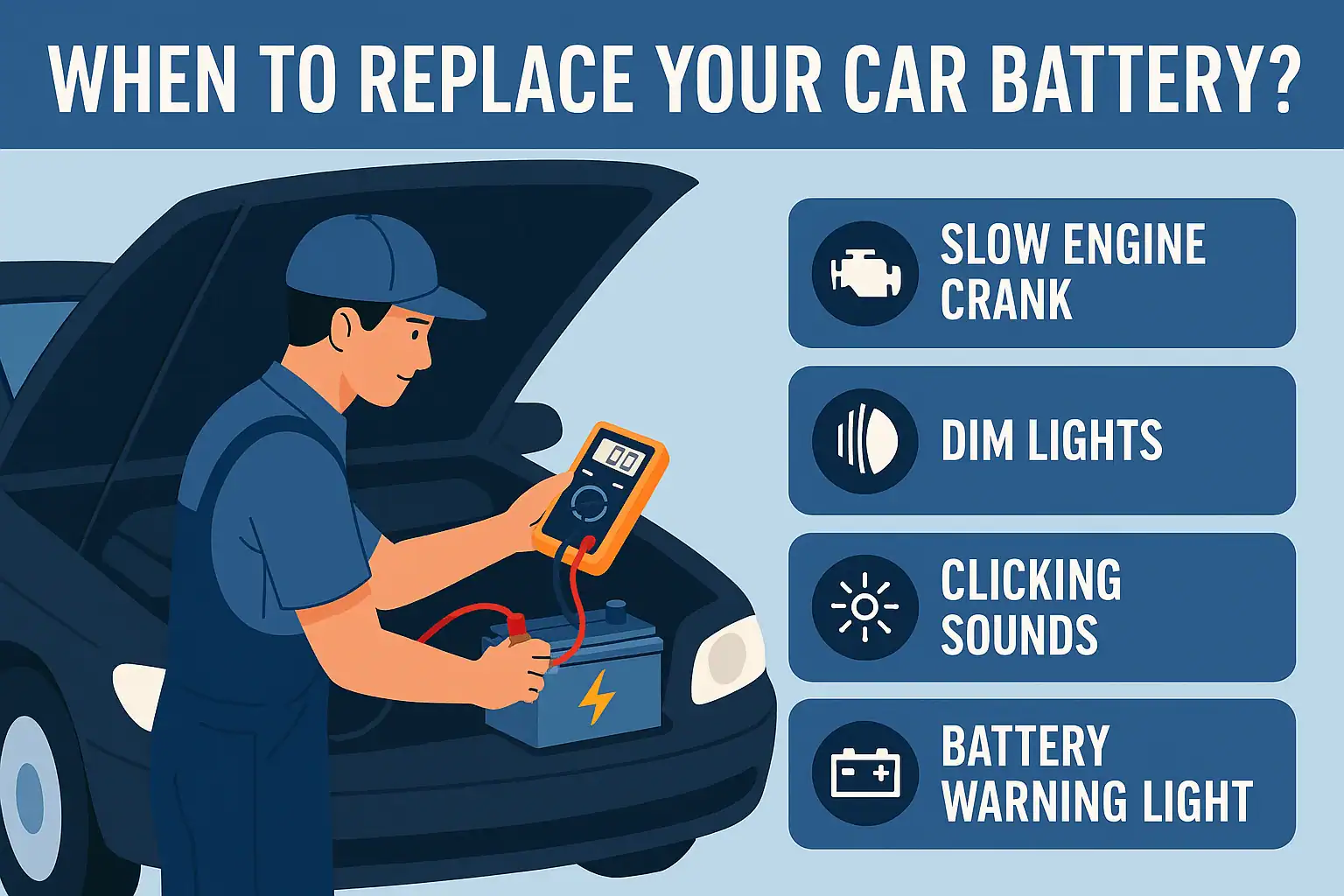
If your car battery has ever died on you in a freezing parking lot or right before work, you already know this: batteries don’t always go quietly.
But here’s the good news — most dead car batteries give off early warning signs if you know what to look for. So today, we’re breaking down when to replace your car battery, how to test it, and what you can do to extend its life.
Why Your Car Battery Matters
Your battery is what powers your vehicle’s electrical system, including the car engine, starter motor, lights, dashboard electronics, and more. A good car battery holds enough electrical charge to keep your vehicle running reliably, even in harsh Canadian winters.
But no battery lasts forever. In fact, after four or five years, most car batteries will be almost completely unreliable, depending on usage and conditions.
How Long Does a Car Battery Last?
The average car battery lifespan is between 3 to 5 years. That number can vary depending on:
- Driving habits (too many quick car rides = shorter battery life)
- Climate (extreme heat or freezing will wear your battery case down faster)
- Type of battery (some maintenance-free batteries last longer than cheap generic batteries)
- Charging system health
If you don’t remember when your last battery replacement was, there’s a good chance your battery is past its prime.
9 Signs It’s Time to Replace Your Car Battery
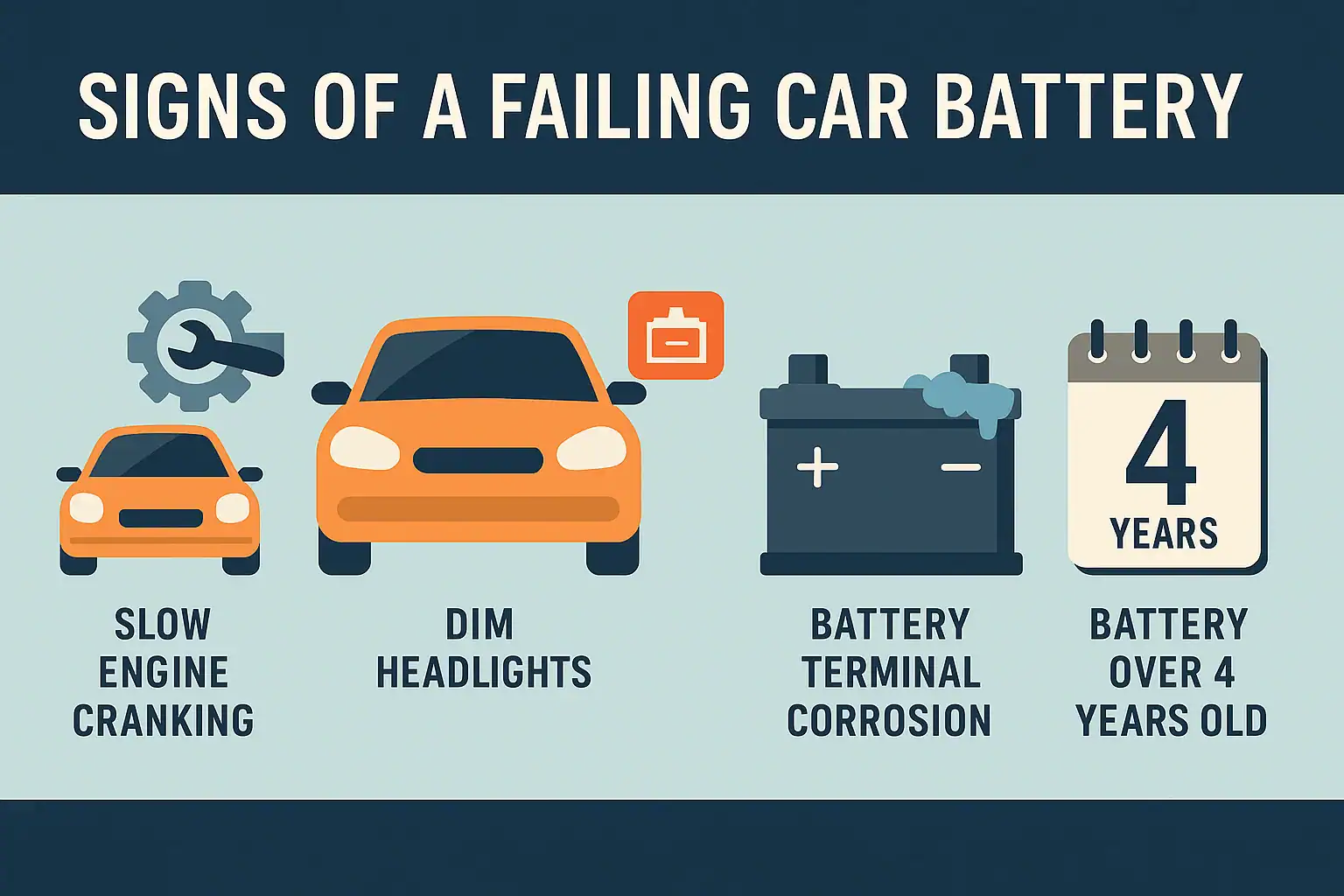
Here’s how to spot a bad car battery before it leaves you stranded:
1. Slow or Sluggish Cranking
When starting your car, if the cranking is delayed or sounds strained, that’s often the battery struggling to hold enough charge.
2. Dimming Lights or Electrical Issues
If your car lights flicker or your radio acts up, the battery voltage may be unstable.
3. Battery Warning Light
The battery-shaped warning light on your dash isn’t just decorative — it often signals a charging system problem or low voltage.
4. Swollen Battery Case
Extreme cold or heat can cause your battery case to swell, making it unsafe to use.
5. Corrosion Around Terminals
If you notice white powder or blue-green gunk on your battery terminals or posts, clean it ASAP. Too much buildup can cause poor connections and battery drainage.
6. Clicking Sound at Start
If you hear a click when turning the ignition but the engine doesn’t crank, your battery may be dead or there’s a loose battery cable.
7. Random Electrical Failures
In newer cars, failing batteries can confuse in-car computers, causing weird glitches.
8. Frequent Boosts Needed
If you’ve had to jumpstart your car more than once recently, stop delaying — it’s time for a new battery.
9. It’s Over 4 Years Old
Even a maintenance-required car battery loses strength over time. Ask for a free battery check if yours is aging.
How to Test Your Car Battery
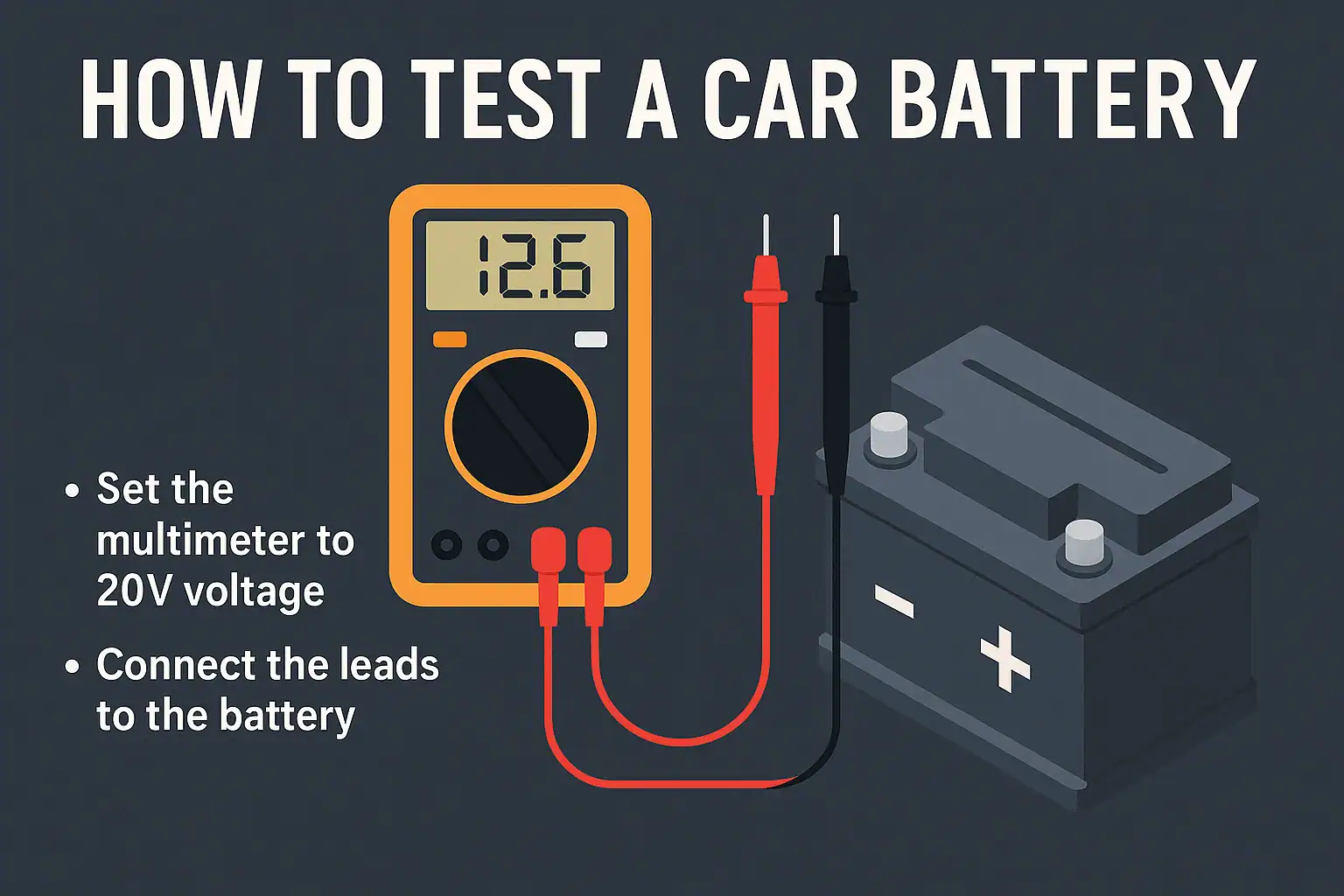
Before assuming the worst, it’s smart to run a simple battery test.
DIY with a Multimeter:
- Turn off your vehicle.
- Connect red to the positive battery post, black to the negative battery terminals.
- Read the display:
- 12.6V or higher = Healthy
- 12.4V to 12.6V = Ok, monitor it
- Below 12.4V = Weak battery voltage
- Under 12.0V = Replace soon
- 12.6V or higher = Healthy
Or, Get a Professional Battery Test
Visit our shop for free battery testing. We test:
- Cold-cranking amps
- Charging system health
- Battery health under load
No guesswork — just real numbers.
Battery Maintenance Tips to Maximize Life
Want to avoid a dead car battery in the future? Here’s how to extend battery life:
- Clean terminals regularly with baking soda and water
- Apply protective grease or a battery cleaning solution
- Avoid frequent short trips — your battery needs time to recharge
- Check the battery tray and battery clamp for a snug fit
- Don’t leave interior lights on when the car sits
- Use a battery blanket in winter for insulation
Choosing the Right Battery Replacement
When replacing, don’t just grab the cheapest option. The right battery type matters — especially in Ontario’s climate.
What to look for:
- Group size that fits your vehicle
- Cold-cranking amps (CCA) suitable for Canadian winters
- Right battery replacement brand (trusted name-brand batteries are more reliable)
- Battery warranty (look for 3+ years minimum)
Avoid generic batteries or incorrectly sized ones that can lead to early failure or battery overcharging issues.
Ask your mechanic for help selecting a climate-specific battery or maintenance-free battery if you want less hassle.
What to Do with Your Old Car Battery
Old car batteries are full of battery acid, heavy metals, and should never be tossed in the trash. Most shops offer free battery recycling, or you can return it for a core charge refund when buying a new battery.
Look for certified programs or ask your local car dealer about disposal options.
Let the Pros Handle It
If you suspect you’ve got a weak battery, don’t wait for it to become a broken battery at the worst time.
At Cambridge Auto Repair, we:
- Perform fast, free battery checks
- Install the right battery size and brand for your vehicle
- Inspect the entire charging system
- Offer proper disposal and battery recycling
All done by certified car technicians who know exactly what your car needs.
Final Thoughts: Replace Before It’s Too Late
So, when should you replace your car battery?
- Every 3–5 years, or sooner with harsh usage
- After a failed test or weak cranking
- When it shows any of the 9 warning signs
A new battery costs far less than a tow, a missed meeting, or a frozen roadside call.
Need help? Schedule your professional battery replacement in Cambridge today — and avoid that dead battery surprise tomorrow.

